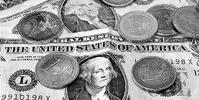Becki Patterson, Business Writer
Euro coins sit atop U.S. Dollar bills
The rapid rise of foreign- exchange trading by Jamai-cans, and the income it is said to generate, has redefined the phrase 'making your money work'.
Living that adage is Jason, who resides in the Kingston 10 area.
Jason, 24, who spoke with Sunday Business on condition that his last name be withheld, says he has been so successful at forex trading that he has quit his regular job at a management and logistics company.
He was drawn into the world of forex trading by a colleague at his old firm.
His interest quickly grew beyond curiosity to self-education.
Since July 2007, Jason has been exclusively a trader and even manages money given to him by family and close friends.
But he actually started about a year ago with US$1,000. He told Sunday Business that initially, he was making a loss - for the first three months - but that, he said, was the price of getting familiar with the platform.
He stuck with it and in the subsequent four months, his initial investment grew to US$3,000.
new trend
Jason's experience mirrors a new trend, which has taken the currency trading business out of the domain of the institutional, into the realm of households.
Though the majority of activity on the market is still by institutions - brokers, mutual funds and banks - the Internet has made it easy for small investors to tap into the market, which operates round the clock.
With many individuals trading the way of Jason - privately - the numbers involved are hard to determine.
However, their popularity and proliferation is unquestionable, evidenced by the increase in the number of 'investment clubs' and 'alternative investment schemes' that have popped up on the radar in the past year alone, both in Jamaica and internationally.
ForexTrading.com, for example, says, "The global foreign- exchange market is the biggest market in the world. The 3.2 trillion USD daily turnover dwarfs the combined turnover of all the world's stock and bond markets."
Market and economic forces mainly determine the exchange rates of currencies. The forex trading industry is really predicated on projected movements in the exchange rate of different currencies.
Indeed, factors within a country can change in the blink of an eye, and it is the right or wrong projection of these that lead to quick wealth or bankruptcy.
The Internet is replete with tutorials on how to trade.
Jason says his tried-and-proven method involved the following:
Familiarise yourself with the terminology, processes and methodologies. For this he recommends Market Traders Institute (MTI).
Take an online class and learn how to interpret fundamental and technical data, how to do an advance analysis of graphs and charts, open an online trial account and train yourself.
Select an online broker after doing appropriate research on credibility factors as you would for any investment, and open a trading account.
Through a local foreign ex-change bank account you will be able to wire funds to your trading account. This is also the account to which your profits will be credited or losses withdrawn.
The website fxstreet.com offers a starter variety of brokerage houses. According to Jason, three important broker-selection factors are: how much leverage they offer; what their fees and interest rates are; and, the variety of currency pairs they list for possible trading.
A trade is buying one currency while at the same time selling another. Trades are done in what are the 'major' world currencies - US, Euro, Canadian, pounds, yen. A currency combination is called a cross-example, EURUSD, USDJPY, GBPUSD.
Leverage refers to the allowed extensions on the funds actually deposited in your margin account. If your broker allows a 100 extension, it means that your US$1,000 deposit can command positions of up to US$1 million.
Having a great amount of leverage enables the trader to make big profits quickly, but there is the greater risk of incurring a large loss and even being completely wiped out.
Here is a simple trade example.
Say your margin is US$100, if you think the euro will gain in value against the US, a leverage of 50 will allow you to acquire 3,380 units of euro for US$5,000, assuming a rate of 1.47952.
If the euro did go up as you predicted, rising say to 1.4900 when you closed your order, this trade would have yielded some 104 pips or a return of US$35. A pip is the smallest unit by which a forex cross price quote changes.
You would have made US$35 on your initial investment of US$100, while still having the principal in hand, giving you a return of 35 per cent.
It is the possibility of generating such big returns on a regular basis that continues to entice investors into the currency market. But making the wrong bet about the direction in which currencies will move can wipe out your gains just as quickly.
Those who do well in currency trading use a combination of instinct and knowledge to project future price movement or what Jason calls 'chartology'.
However, his two cardinal rules are 'history always repeats itself and what goes up must come down'. So be warned - trade at your own risk.
beckipatterson@hotmail.com

